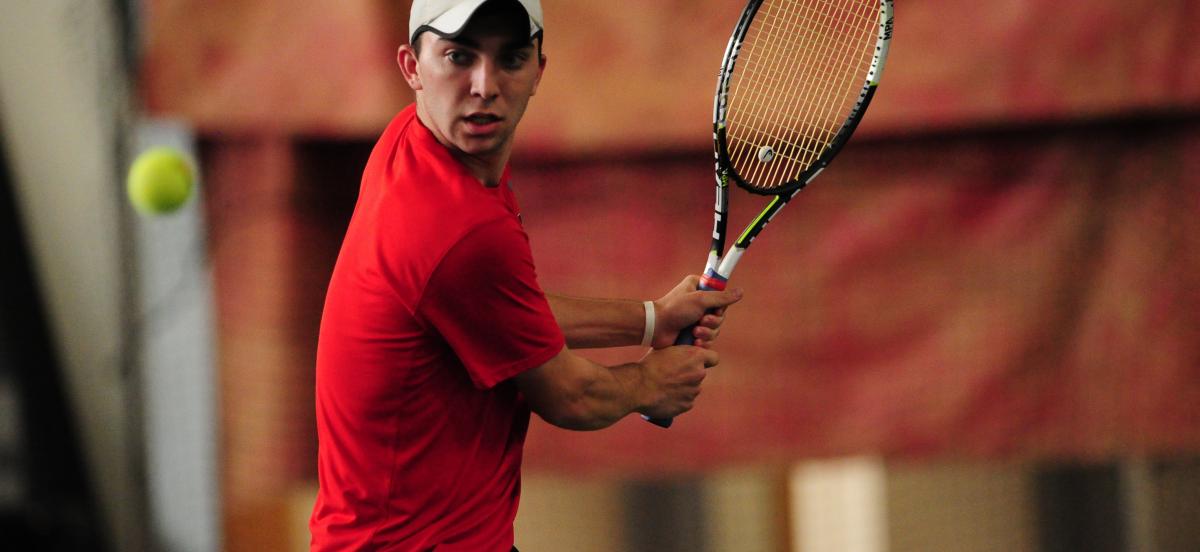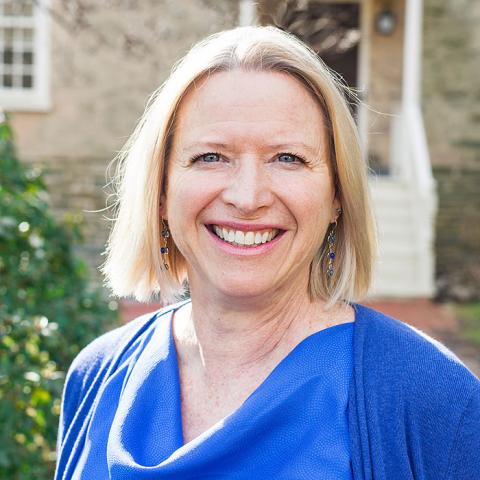Economics Spotlighted Student: Josh Moskovitz '19

Details
For his economics thesis, Josh Moskovitz '19 aims to study how an individual’s decision-making strategy predicts their leadership qualities. He is particularly interested in the maximizer/satisficer decision-making strategy.
Tennis was a main factor on which small liberal arts college Josh Moskovitz ’19 would choose to attend. While location and size were important factors in his decision, the opportunity to play on a college tennis team was one he couldn’t pass up. Josh met then tennis Coach Sloane during a match in the spring of his high school junior year and found out that Coach Sloane had actually taught at his Connecticut high school in the 1970’s. After making this connection, watching the match, and talking with future teammates during his over-night visit, Josh felt drawn to not only the Haverford tennis team, but the community as a whole. Although Josh grew up in Connecticut, he now calls Tucson, Arizona home after his parents moved there during his first year of college.
Josh has played tennis since he was 8 years old, playing tournaments throughout USTA New England and on a national scale. He has been Captain of the Haverford men’s tennis team for the past two years, immensely enjoying the leadership role. In addition, as a sophomore he served as an Honor Code Orienteer, helping to familiarize first-year students with Customs and the Honor Code.
As a youngster Josh’s father exposed him to Freakonomics podcasts, where he listened and learned about topics and issues in the social sciences, discussed through the lens of how people think and make decisions. In high school Josh’s interests and strengths were in math and science but upon entering college, he wanted to apply these strengths in a practical manner to the social sciences, namely economics and psychology. Josh will matriculate with a major in economics, a minor in psychology and a concentration in mathematical-economics.
Josh took three courses with visiting economics/political science professor Matthew Incantalupo (currently Assistant Professor of Political Science at Yeshiva University). Professor Incantalupo’s classes are highlights of his curriculum. Learning about strategic game theory, inequality, public policy, and applications of behavioral economics have yielded the educational experience he was aiming for.
Summer internships have complemented his classroom experiences. The summer following his freshman year, Josh worked in Tucson, Arizona for Raskob Kambourian Financial Advisors with their financial advisors and financial planners. He researched mutual funds across sectors to be included in client portfolios and shadowed his mentor during client meetings.
While he realized that finance was not necessarily the career path for him, he enjoyed analyzing how people thought through their financial decisions. He began to look into careers that would provide him the opportunity to learn more about people’s decision making. The next year he was awarded a Whitehead Internship, spending the summer working in New York City at Engagious. Living on the campus of Columbia University, Josh commuted daily to the market research firm where he delved into the world of qualitative market research data, gleaned from in-depth interviews and dial-tested focus groups. He learned about targeting and engaging audiences, qualitative market research methodologies, and refinement of messaging to increase constituent support. His skills in interpreting and reporting data were put to task.
This past summer he worked with Assistant Professor of Economics Giri Parameswaran as a Research Assistant, focusing on Nash Bargaining equilibria in committees. The research applied mathematical analyses to rational committee decision-making.
For his thesis, Josh aims to study how an individual’s decision-making strategy predicts their leadership qualities. He is particularly interested in the maximizer/satisficer decision-making strategy. To maximizers, it is important to choose what is best, so they attempt to acquire as much information as possible about all potential choices before making a decision. On the other hand, satisficers choose options that are “good enough”, or meet a certain threshold of utility. Josh plans on using Amazon Mechanical Turk to implement three experiments to assess respondents’ delegation preferences, altruistic and fairness preferences, and their level of honesty. He will then use respondents’ maximizer/satisficer score to predict their leadership qualities while controlling for variables such as their personality, grit, culture, and background characteristics.
Once he graduates, Josh sees himself working for a market research firm, consulting firm, or in the consumer insights division of a retail company analyzing consumer behavior and helping to create more customer-centric business processes.




